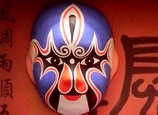
Expiration date
Despite of the consistent heating-up of the controversy, the Sungari auction house has kept silent and has showed no intention of withdrawing the letters from the upcoming auction. However, Yang has made it clear in her public letter that if the auction is held, she would file a lawsuit.
On June 2, Yang issued another public letter reiterating her opposition to any auctioning of her families' personal letters. This time the public letter has another target: Poly International Auction, which planed to auction three letters of Qian and Yang yesterday. But shortly after Yang's restatement of her opposition, Poly called off the auction.
"From the perspective of the copyright law, the publication right of those letters belongs to Yang Jiang, so she has the right to forbid the auction," said Zhang Hongbo, director-general of the China Written Works Copyright Society. Zhang told the Nanfang Daily that if the case were finally heard in court, he was optimistic that Yang would win.
"The controversy caused by the auction of Qian's letters this time is more of an individual case," said Xie Xiaodong, vice general manager of the Beijing Council International Auction, which successfully auctioned Nanchangjie No.54: the lot included documents, scripts and personal letters of Liang Qichao (1873-1929), a Chinese scholar and philosopher of the late Qing Dynasty and early period of the Republic of China (1912-49) at the price of 67.09 million yuan in December last year.
"The auction of Liang's personal letters doesn't involve copyright issues, since according to our country's law the copyright of the author or his family members expires 50 years after the author's death," Xie told the Global Times.
Popular trend
The copyright controversy caused by the auction of Qian's letters this time may be an isolated case, but the popularity of famous people's letters is absolutely a trend among collectors in the current auction market. "[We have] entered a fast-track of growth since 2009, the year in which Chen Duxiu's personal letters were sold by China Guardian. [That occurrence] marked a signature auction," said Xie.
The auction referred to by Xie included 13 letters by Chen (1879-1942, a Chinese revolutionary socialist and educator) and Hu Shi (1891-1962, also a great philosopher) during the years between 1920 and 1935. Those letters involved a series of historic events like the independent running of the then-influential monthly magazine Xin Qing Nian (New Youth), which was initiated by Chen to promote and advocate science and democracy. The magazine played a significant role during the May Fourth Movement in 1919.
Holding a great significance in historic studies, those 13 letters finally sold at the price of 5.54 million yuan in 2009, setting a record high for the auction of famous historic people's letters and manuscripts in China.
Due to their private nature, the personal letters of famous people from history are not just a true reflection of their time, but also a mirror of the author's rarely-seen temperament and artistic accomplishment. "Combined with their scarcity, the comprehensive value in history and document study, as well as the calligraphy appreciation, underpin the rising popularity of those letters and manuscripts," said Xie, adding, "Auction companies should be prudent when they decide to hold such auctions."



















![]()
